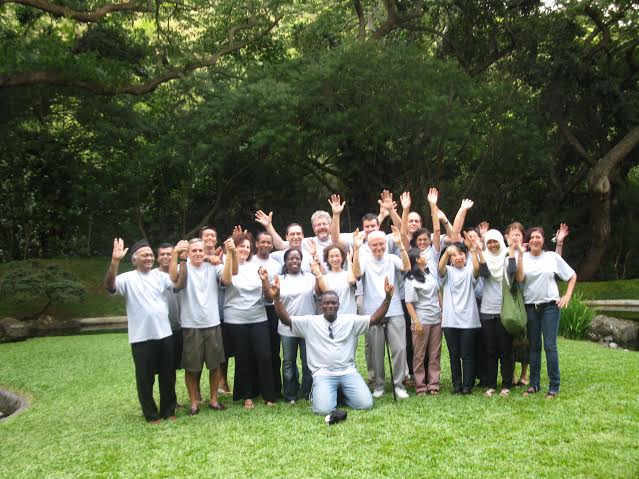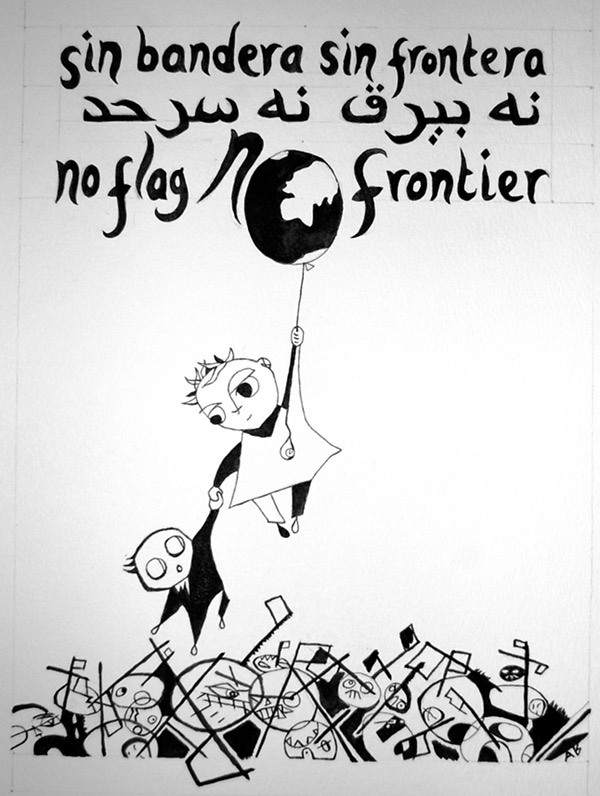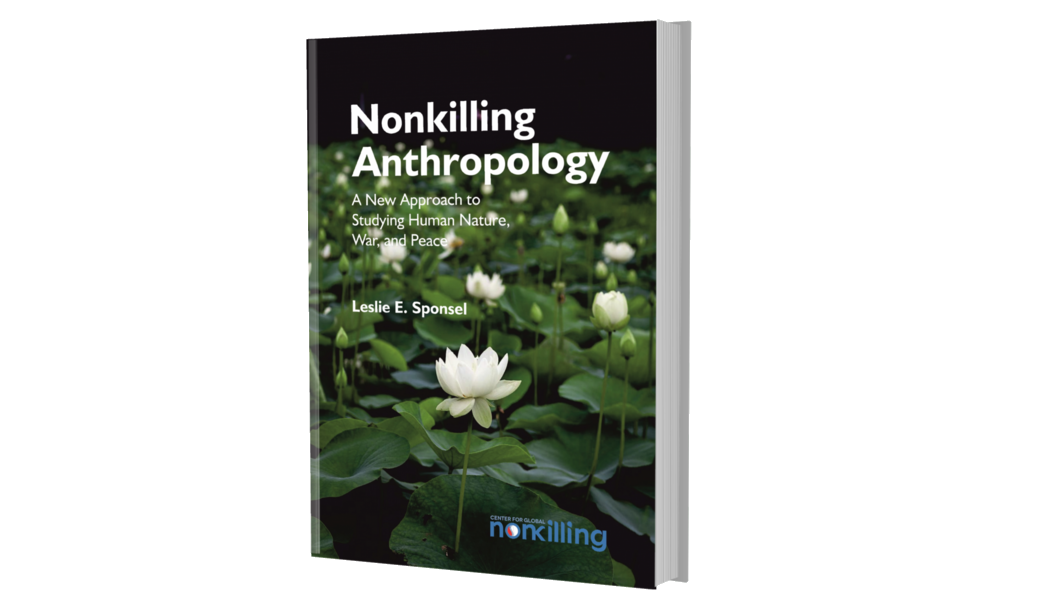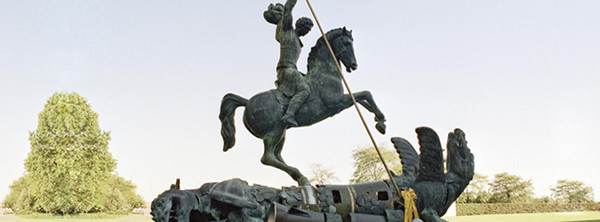|
|
|
|
|
|
Nonkilling Arts Research Committee Letter: Vol. 5, N. 6 (November-December 2021)
|
|
|
|
This is our year-ending issue. It feels good to have your Nonkilling contributions sent in 2021, in particular, the stories related to Nonkilling projects on Visual Arts, Music, Posters, and Documentary Films. Each point to every artist’s deeper understanding of Nonkilling. There is a special topic on the Art of Learning.
|
|
|
|
1. Nonkilling Poetry
|
Being educated for nonkilling
|
What is being educated for Nonkilling?
It’s the hardest challenge to Humankind
For it calls for more than harmonizing
And implies the dignifying of every mind
|
What is being educated for Nonkilling?
It can mean a Commandment applying
Or a unique moral obligation instilling
With social responsibility complying
|
What is being educated for nonkillling?
It is the ultimate educational right
Involving Life-saving and preserving
Giving all creatures a peaceful light.
|
— Francisco Gomes de Matos, Nonkilling Peace linguist, Recife, Brazil
(Nurturing Nonkilling: A Poetic Plantation, Center for Global Nonkilling, 2009, Honolulu, Hawaii, p.152)
|
Are there more flowers than human beings,
Are there more fruits than destinies,
Are there more joys than moments?
What does a pearl of infinity look like,
How do we come into resonance,
Is there a beyond for «space and time»?
A moment of eternal joy,
An invincible peace, Perfect awareness ...
I thought I saw a smile, in the distance.
Was it yours, his or hers, mine, Everyone's,
Or the one of the wealth of destiny,
The Universe Celebrating life ... ?
Smile, was it ours, universal,
Gathered by joy and friendship
In a hurry, to join
A blooming humanity?
There are more Suns in the sky
That we will ever count,
Here on our Earth,
There will never be more people,
Than the people we could love...
There is only one planet,
One love, and one smile,
For our dear humanity!
A meaning and worth,
life on Earth!
|
— Christophe Barbey, Éditions Pour de Vrai, Switzerland. Translated from French version.
|
|
|
|
2. Nonkilling Project
|
CGNK Director Joám Evans Pim writes: "Since the inception of CGNK we have been seeking to define the meaning of Nonkilling Literature, covering old and recent works of fiction and nonfiction by established as well as new authors. CGNK founder late Glenn D. Paige once noted, “Nonkilling Culture crosses all the lines”. Cultures may be geographic specific, in the post-colonial world with the redrawing of boundaries and ensuing displacements, they have been changing beyond recognition in a lifetime."
|
Balwant Bhaneja in a recently published essay entitled "Aspects of Nonkilling Literature", using six works of new fiction and nonfiction published over the past decade, examines the possibility of a Nonkilling Literature as an oeuvre. The essay was published in the October 2021 issue of the Humanizing Language Teaching (HLT) journal. Bhaneja writes: "The artist having a principled nonkilling spirit within is of fundamental importance in these artistic creations. These works whether fiction or non-fiction are not written from a place of hatred but with a genuine desire of reconciliation with enemy. Otherwise we just seem to get ‘atrocity- lamenting’ art over the centuries without any principled nonkilling critique."
|
|
|
|
3. Nonkilling Indigenous Arts
Interview with Indigenous story teller, singer and documentary filmmaker, Alanis Obomsawin
This interview by CBC Radio “Q” program host, Tom Power, introduces 89-year young Alanis Obomsawin, covering six decades of her remarkable life as an indigenous artist and activist. Obomsawin uses her art of story telling and film-making for defending the dignity and rights of her people while expanding the definition of Canada and Canadian. Her work points to the gaps in our knowledge conveniently left out from a nation’s colonial history and now being actively pursued in thoughtful ways by Obomsawin's art, compelling us to become aware of a fuller history of country with its indigenous people at its core.
|
|
|
|
4. Nonkilling Education
(i) Human Rights Nonkilling Education at the UN Human Rights Council by CGNK Rep Christophe Barbey: CGNK Submission to UN Human Rights Council, 48th Season, 10th session, 10th anniversary was on human rights education, Geneva. 29th of September 2021.
|
|
|
The right to life is at the core of all human rights: if life is cancelled, all human rights are cancelled.The right to life shows the essence of any prevention program: life can only be protected through prevention means.The right to life, fulfilling the promise of the right to life, assuring universal respect for life and having the means needed for a good life given to all; this is the central worth of any existence, the right to life and its fulfillment.
This is why we demand a greater integration of the right to life into human rights education and human rights practices.
Therefore, we call upon you, upon youth and future generations, upon every human being and unto all institutions to integrate “reverence for life” and “the nonkilling principle” into human rights education. And we thank you, for the good and the better given to life.This is our common future.
|
|
— CGNK UN Rep Christophe Barbey, Geneva, Switzerland
(A comprehensive report on HRC deliberations in CGNK UPDATE item 7)
|
|
(ii) Art of Teaching/Learning: Nonkilling Leadership Academies (2009-11): Choreographing nonkilling movements (A Reflection) By Thomas A. Fee, Advisor and Member CGNK Leadership Academy founding team, NY, USA
|
An ensemble of nonkilling advocates came together in 2008 to design and choreograph a three year global leadership academy initiative. Akin to experimental theatre it was a blend of styles, approaches, pedagogy, and creative impulses. Inspired by Glenn D. Paige’s book, Global Nonkilling Political Science and his vision, the Center for Global Nonkilling (CGNK) was launched in 2008. Professor Paige conducted the team. Like the musician he was as a younger man, Glenn helped inspire our troupe to use the rigor and discipline of a core curriculum while encouraging improvisation. In 2009-2011 the CGNK atelier brought dozens of creative colleagues together to shape the unique initiative and hosted three global leadership academies in Hawai’i with philanthropic support from Humanity United. A decade later the art of bringing young leaders together to learn and lead a nonkilling society continues to inspire. This article reminds us that teaching and training are creative enterprises requiring a vision and the passion to make it happen.
|
Forty two young participants from more than twenty nations and states attended the Nonkilling academies. The participants were from Bangladesh, Canada, China, Colombia, Germany, Guatemala, Liberia, Haiti, India, Iran/UK, N. Ireland, Israel, Italy, Kenya, Liberia, Nepal, Palestine, Philippines, Rwanda, Thailand, Trinidad Tobago, United States and Western Sahara...
|
|

|
|
|
5. Nonkilling Visual Art
Nonkilling Visual Arts by Fabricants de Futur (Fdf)
Ink drawing by Fdf activist-artist Amelia Burke on the theme of ‘No Flag No Frontier’, it depicts a person under siege lifted from a hostile violent crowd.
|
|
|
|

|
|
|
6. Nonkilling Music
(i) Music Education, Development of Children and Nonkilling World by Rashida Khanam, CGNK Bangladesh
In working towards a Nonkilling world, music is the linking power of all emotional, spiritual and physical elements of the Universe. Professor Glenn D. Paige once noted that we may differ on the social uses of nonkilling music, but nonkilling music "in creation or use could not produce atrocities ...or lethal responses to them..."** Positive Music throughout human history, since classical period, has fascinated philosophers like Confucius, Socrates, Plato, Aristotle, Al Farabi, Ibn Sina and many others. Confucius, one of the great philosophers of China promoted music in educational practice. To Confucius, "music was essential to properly accord with the way of heaven and earth. The key result of music is harmony of emotions." One cannot be knowledgeable without music. According to Socrates, "music is, as we shall see, philosophical music, the music of truth." He promoted an unbending set of ethical values and morals. In his ethical system there is no place for "double standard, dishonesty and dishonor." Plato, the first political philosopher, in his book The Republic gave importance to the necessity of music education for "training of soul." He introduced music in school curriculum at primary level. Similarly, Socrates highlighted the need for music to civilize young guardians. Aristotle also gave importance to positive music and music education. In classical Islamic period, music was viewed significant by Al Farabi and Ibn Sina. What the philosophers thought of music and music education of children more than 2,500 years ago exerts positive influence even today in their development with regards to metacognitive, cognitive, social and behavioral outcomes toward a Nonkilling world in the context of contemporary violence and killings.
|
(**Prof. Glenn Paige email to Dr. Olivier Urbain on Nonkilling Music, 4 Sept.2016)
|
(ii) Nonkilling Music Concert by Quebec music group MOSAÏQUE
NKARC colleague Jayanta Guha sends the following:
MOSAÏQUE – en / in Concert - Festival Tam Tam Macadam 2021 / Ville d’Alma
THE MUSIC CONTINUES
On August 25, 2019, Mosaïque was on stage at the Orientalys Festival (TD Stage, Old Port of Montreal). Covid-19 prevented us from accepting the invitation of Festival Accès Asie de Montréal to perform in 2020. So it was with great joy that we took the stage on August 29th, exactly two years later, at Place Festival Alma, in Alma, Quebec. You will notice that the line-up has changed a bit but the chemistry is still there. It is a joy for us to be on stage together and to share it with you.
|
NOTES: GISOU (in persian), AAKASHE AAJ METTECCHE RONG (in Bengali); BANGLAR DAAK (inspiration – Bengal – composition Raja Bhattacharya; arrangement – Mosaïque)
|
|
|
|
7. CGNK Updates
- Nonkilling at Human Rights Council’s 48th Session by Joám Evans Pim
Evans Pim writes: "The Council adopted without opposition (4 abstentions) the establishment of a right to a safe environment and the Council asked to the General Assembly to do likewise. This is progressively opening the door for the full legal and universal recognition of the right to a healthy and sustainable planet. A good step towards setting the proper human standards regarding our vital environment…
…The most salient part of CGNK’s work during this session is certainly our declaration on “Nonkilling education” during the high-level panel convened for the 10th anniversary of the Declaration on Human Rights Education and Training. We recalled the central nature of life and asked for reverence for life and for the Nonkilling principle to be integrated into all human rights teaching curricula."
- Book Release Nonkilling Anthropology: A New Approach to the Study of Human Nature, War and Peace by Leslie D. Sponsel, University of Hawaii
- Introductory Lecture by Prof. Sponsel: 1 hr. Youtube Power Point.
- Book review.
|

|
- Updates from CGNK India by Katyayani Singh, General Secretary, CGNKI
Reports on:
(i) CGNK India webinar on the Founder of the Philippines Nonkilling Movement Professor Dr. Joseph Abueva(1928 –2021): On the occasion of International Peace Day, 21 Sept 2021, CGNK India held a webinar celebrating the life of Professor Dr. Joseph “Pepe” Abueva, Founder of the Nonkilling movement in the Philippines (2004-2021). He passed away on 18th August. Dr. Abueva was a distinguished Filipino political scientist and public administration scholar who served as the 16th president of the University of the Philippines. A Ten Outstanding Young Men (TOYM) awardee for political science in 1962, he devoted much of his career in community development and academic circles.
His path-breaking nonkilling work (2004-2021) in the Philippines is a case study on how to develop step by step a national nonkilling movement, well reported at CGNK website. This includes a seminal book entitled, Towards a Nonkilling Philippines Society, Filipino translation of Nonkilling Global Political Science, Establishment of the Institute of Nonkilling at Kalayani College, and Prof. Abueva’s leading-edge project to establish a Department of Peace in the Philippines government through Legislative Bill S.B. 2569 that was tabled in the 14th Congress (October 2014) by Senator Villar. CGNK Chair Prof. Anoop Swarup, Drs. Olivier and Yoko Urbain, Thomas Fee, Dr. Katyayni Singh, and Bill Bhaneja paid tributes to Prof. Abueva and his prolific contribution to Nonkilling movement
(ii) CGNK India webinar on Afghanistan’s Humanitarian Imbroglio: The webinar marked the inauguration of a lecture series in the name of Dr. Bill Bhaneja to discuss important issues related to Nonkilling to which Bill has dedicated his life. Our first discussion in this series was about "The Afghanistan Humanitarian Imbroglio: An Affirmative Nonkilling Perspective" chaired by CGNK Chair Prof. Anoop Swarup. In this session, discussion was taken up by the panelists about how USA had made use of its position as the dominant actor in the world community to attack smaller states such as Vietnam, Iraq, Libya and Afghanistan. The repercussions which these ‘fragile’ states on account of long-term American intrusions, had to face led to massive humanitarian and economic damage that would take years to recover from. Dr. Bhaneja in his closing remarks spoke on the issue and based on his familiarity with the region, provided a deeper insight on the topic of panel discussion that left the participants much to think about.
|
|
|
8. Nonkilling Reflections
|

|
|
|
|
|
9. Nonkilling Journalism
|
|
|
Last Word
A Thanksgiving Blessing
Here’s to those who cling to optimism
and act to make the world a better place.
Let’s give thanks to them.
|
Given the state of the world and the global environment,
it is easy to surrender to discouragement, even despair.
Is there any cause for optimism, many ask?
|
There is a case to be made for what I call “functional optimism”.
Optimism, in my view, needs no reason. It is its own rationale.
|
There need not be any logical reason for embracing optimism,
because nothing can be accomplished without it. The alternative to
optimism is inaction and inertia. It feels so much healthier, so much more
human, to be doing something to help bring about a sustainable future.
|
|
After all, what could possibly be more ineffective than doing nothing?
|
The fall of apartheid seemed impossible, the collapse of the Soviet empire
seemed impossible, the abolition of slavery seemed impossible – so many
things that seemed impossible have happened already – who are we to
decide whether or not something is possible? Those who brought about
these changes never lost hope. They remained optimistic.
Builders, creators, visionaries, and true poets are always optimistic.
Without them there is no future that is compatible with humanity.
|
— Gordon Edwards, Canadian Nuclear Disarmament Scholar and Activist
|
|
|
|
|
Deep gratitude to everyone who contributed and pointed to material for the Letter.
|
It is a collaborative effort of like-minded people from many peace groups, to name a few — Touda, Transcend Media Service, Peace People, Fabricants de futur, ABC Brazil, Nuclear Age Peace Foundation, Gandhi Smiriti, Soka Gakkai Ikeda, Min ON, Sarvodaya, IFLAC, Artistes pour la Paix, and Mystique.
|
My special thanks to colleague webmaster Manuel Casal and CGNK Director Joám Evans Pim for their unrelenting support throughout the year in producing NKARC newsletter.
|
As always, I look forward to your inspiration, suggestions and comments.
|
Be Well, Stay Safe.
Nonkilling Regards,
|
|
"Nonkilling Culture crosses all the lines." —Glenn D. Paige
|
Nonkilling is THE measure of Human progress
|
[THIS IS AN INTERNAL NEWSLETTER OF THE NKARC. COPYRIGHT FOR ALL MATERIAL IN THE NEWSLETTER REMAINS PROPERTY OF THE SOURCES/WRITERS/ART CREATORS]
|
|
|
|
Stay in contact also on Social Networks
- Please feel free to contact NKARC Letter's coordinator at billbhaneja@nonkilling.org.
- You can also follow the Center for Global Nonkilling at these social networks:
|
 
|
|
|
|
|
|
|
|